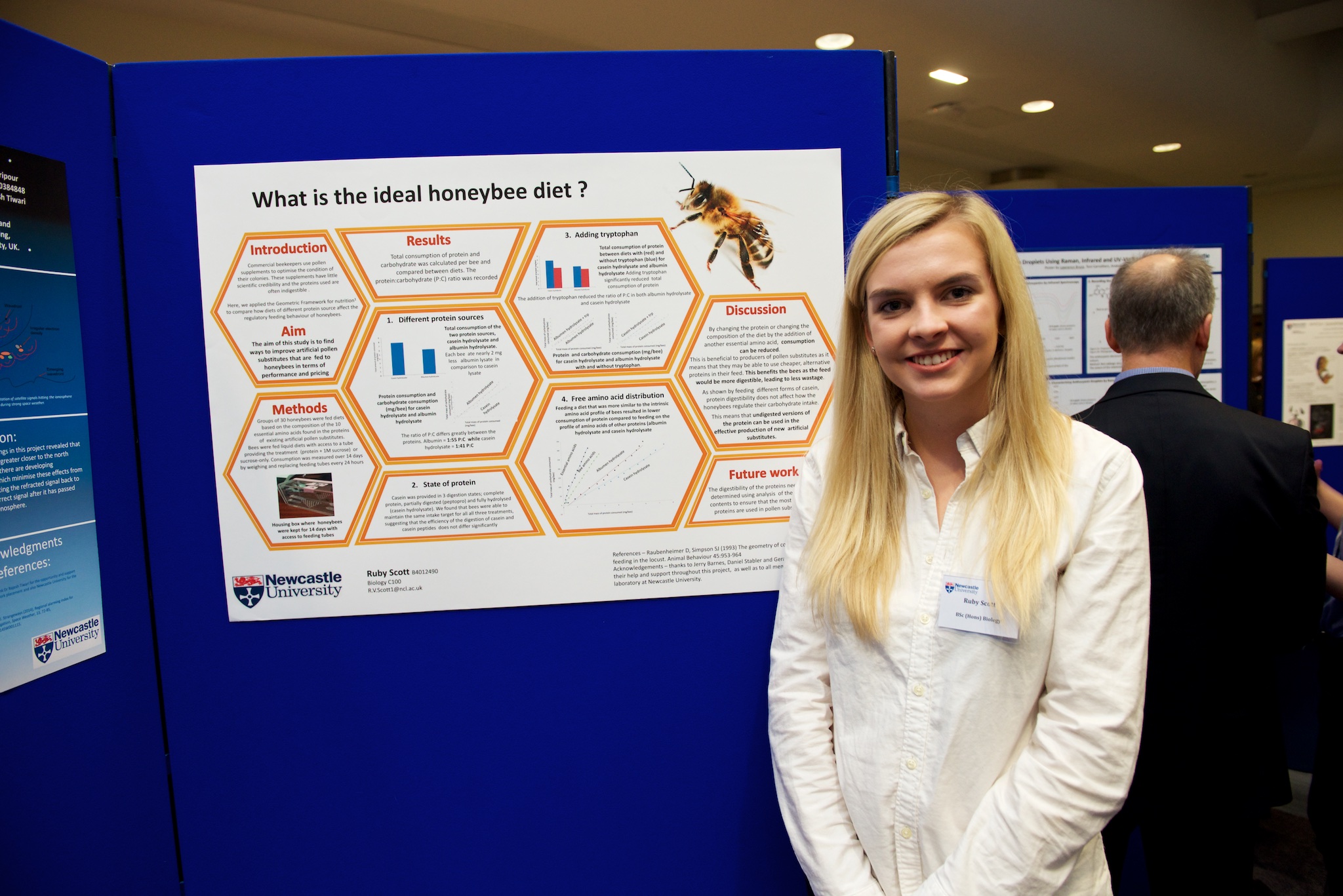2016 Participants
 Ruby Scott
Ruby Scott
The worldwide decline in honeybee populations has caused much concern due to the central role they play as an ecosystem service. One of the major contributors to the decline in populations is believed to be poor nutrition as a consequence of intensive agriculture. As a result, beekeepers are increasingly using artificial pollen substitutes to feed and maintain their colonies. Unfortunately, these are poorly constructed, have little scientific credibility and contain indigestible protein leading to considerable wastage. This study explored the problem with a goal of providing workable solutions to overcome this issue. Artificial solutions were fed to honeybees for 14 days and consumption was measured. It was found that different proteins affected how much honeybees consumed in relation to carbohydrates and also that the addition of tryptophan reduced dietary protein intake. These findings will contribute to work directed at developing an improved pollen substitute that can be used to provide bees with optimal nutrition.
Funding source: Newcastle University
Supervisors: Prof Jerry Barnes, Prof Jerri Wright & Dan Stabler
